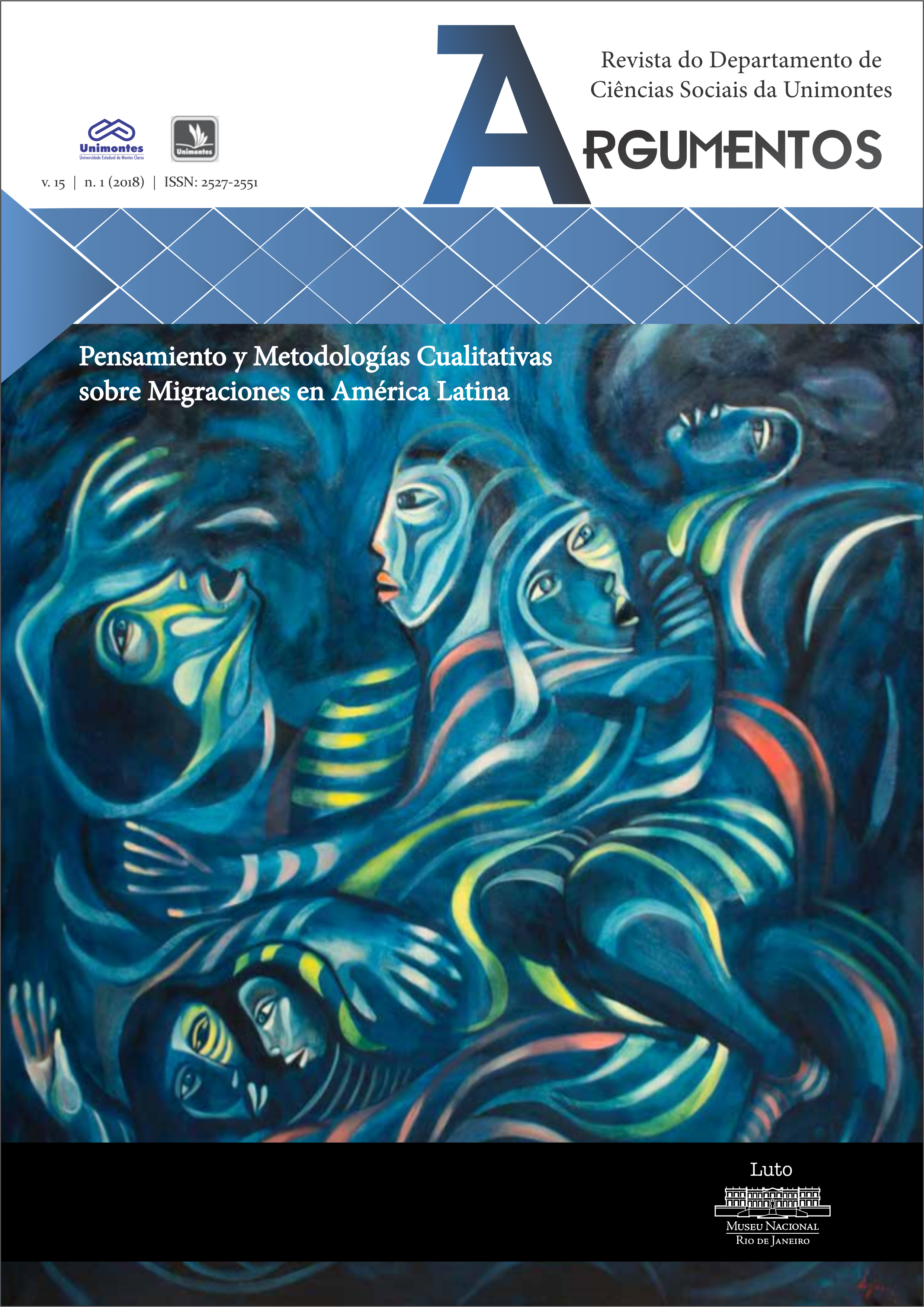Pensar a partir dos migrantes: a perspectiva de Thomas e Znaniecki
Thinking from migrants: the perspective of Thomas and Znaniecki
Keywords:
Migration, Narratives, Ethnography, Political Anthropology, Migration StudiesAbstract
The management of migration policies builds immigration as a problem, especially when these moving bodies participate in disputes and social disruptions in urban spaces. This paper, on the other hand, assumes the challenge of taking the migratory phenomenon as a perspective. William I. Thomas and Florian Znaniecki (1974) became a milestone in migratory studies mainly for consolidating a research methodology in which the dense description of a social situation was built with a remarkable emphasis on what women and men said about themselves. It is a proposal to apprehend migration through its transits and, above all, as a subjective experience based on the relations of migrants, the networks they organize and their narratives. It aims to delineate and dispute an epistemology about contemporary migratory movements, in order to rescue the prominent power of this classic ethnography: to think of the migrants as a methodological bias and as a political practice.
Downloads
References
ALTO COMISSARIADO DAS NAÇÕES UNIDAS PARA REFUGIADOS (ACNUR). The Global Report. 2017. Disponível em: <http://www.unhcr.org/the-global-report.html>. Último acesso em: 20 out 2017.
BUTLER, Judith. Quadros de Guerra: quando a vida é passível de luto? 2a ed. Rio de Janeiro: Civilização Brasileira, 2016.
DAS, Veena. Tecnologías delyo: la pobreza y lasaludenun entorno urbano. In: DAS, Veena. Sujetosdeldolor, agentes de dignidad. Bogotá: Universidad Nacional de Colombia/ Facultad de Ciencias Humanas/PontificiaUniversidadJaveriana/Instituto Pensar, 2008.
DE JESUS, Carolina Maria. Quarto de Despejo: diário de Uma favelada. São Paulo: Ática, 2007.
FASSIN, Didier. La Rasion Humanitaire: une histoire morale du temps présent. Paris: Editions du Seuil, 2010, 358p.
FOUCAULT, Michel. Segurança, Território e População. São Paulo: Martins Fontes, 2008, 572p.
_____. Em Defesa da Sociedade: curso no Collège de France (1975-1976). 2a ed. São Paulo: Editora WMF Martins Fontes, 2010, 269p.
HANNERZ, Ulf. Explorando a Cidade: em busca de uma antropologia urbana. Rio de Janeiro: Vozes, 2015.
MEZZADRA, Sandro. Derecho de fuga: migraciones, ciudadanía y globalización. Madrid: Traficantes de Sueños, 2005, 178p.
SAYAD, Abdelmalek.Uma família deslocada, A maldição e A emancipação. In: BOURDIEU, Pierre (coord.). A miséria do mundo. Petrópolis: Vozes, 1997, p. 35-62; 651-672; 673-682.
SIMMEL, Georg. O estrangeiro. RBSE 4 (12): 265-271, 2005.
_____. A metrópole e a vida mental. In: VELHO, Otávio Guilherme(org.)O fenômeno urbano. Rio de Janeiro: Zahar Editores, p. 11-25, 1976.
THOMAS, WilliamI. & ZNANIECKI, Florian. The Polish Peasant in Europe and America. New York: Octagon Books, 1974.







.png)










.png)





